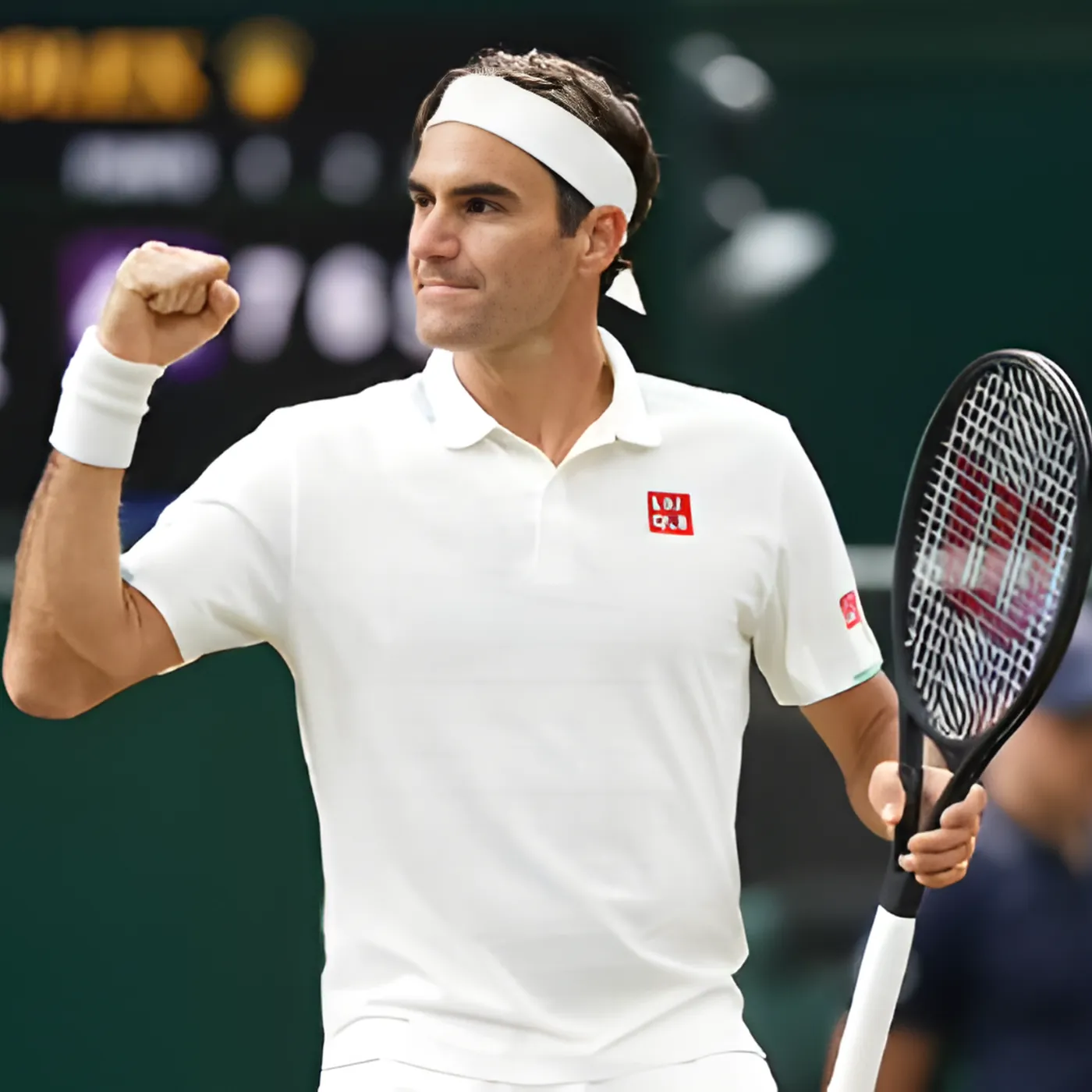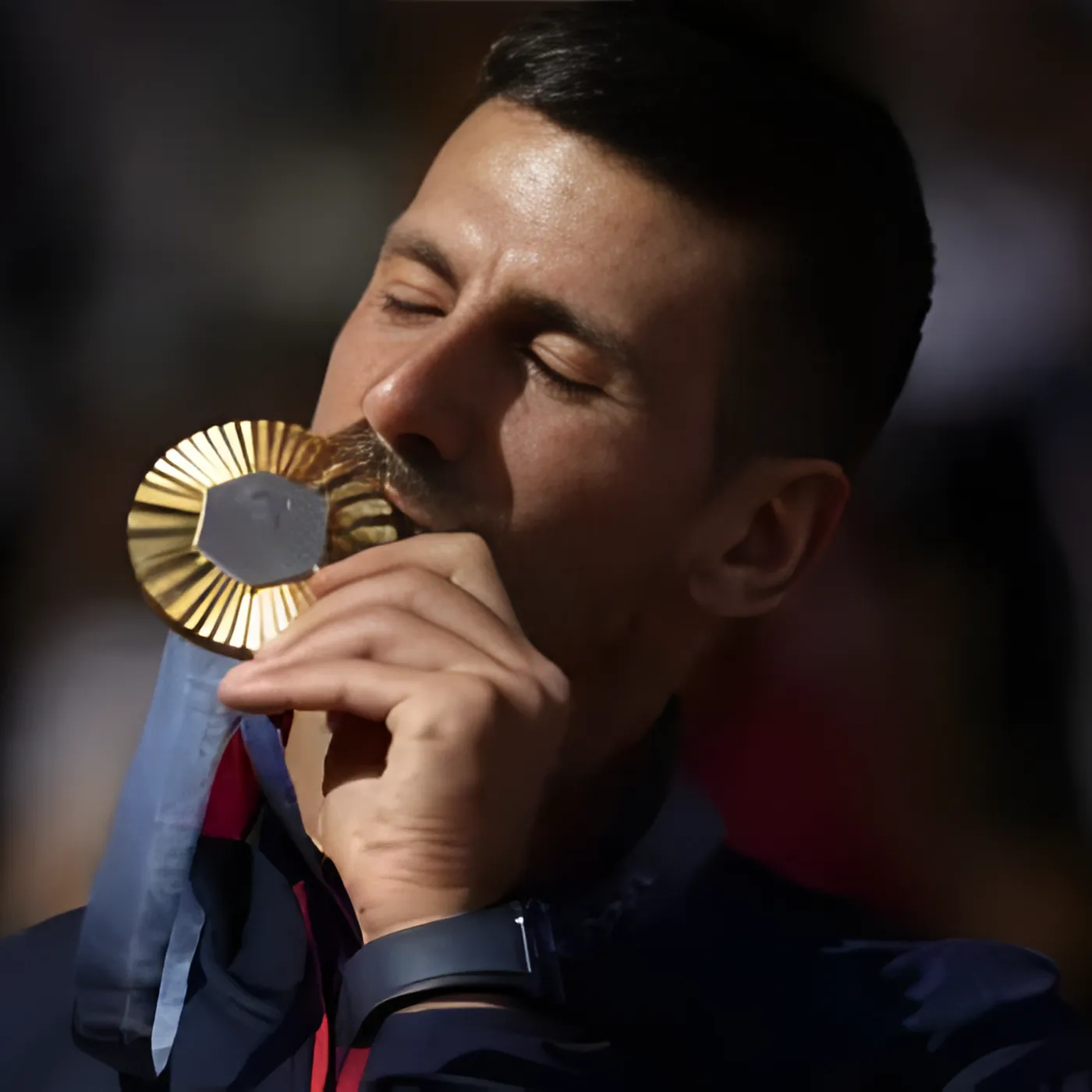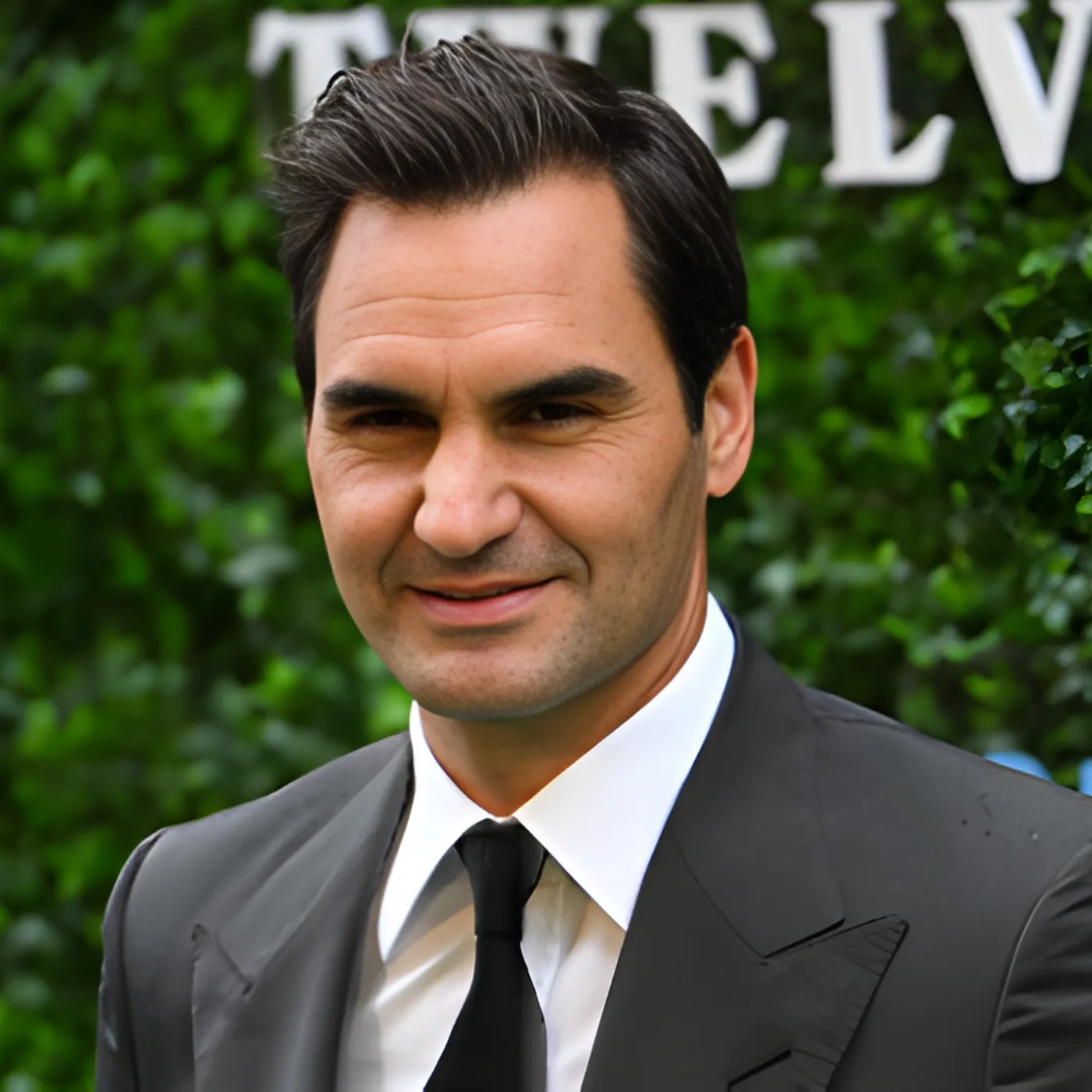
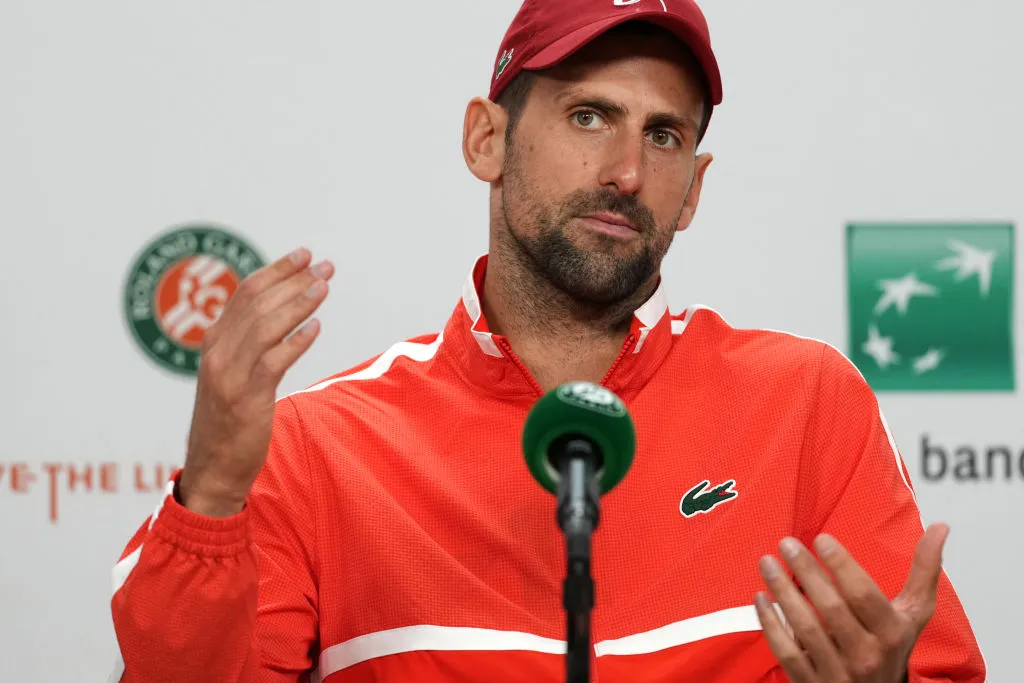
Novak Djokovic Opens Up: From Surviving Bombings with $10 to the Sacrifice That Changed His Life
Few athletes embody resilience and determination like Novak Djokovic. Widely regarded as one of the greatest tennis players in history, Djokovic’s path to success was never straightforward. Behind the Grand Slam titles, the weeks at world number one, and the iconic victories over rivals like Roger Federer and Rafael Nadal, lies a story of survival, family sacrifice, and relentless belief in the face of adversity. His journey, beginning in war-torn Serbia during the 1990s, reveals the extraordinary challenges he endured, and how his father’s daring gamble changed the trajectory of his entire life.
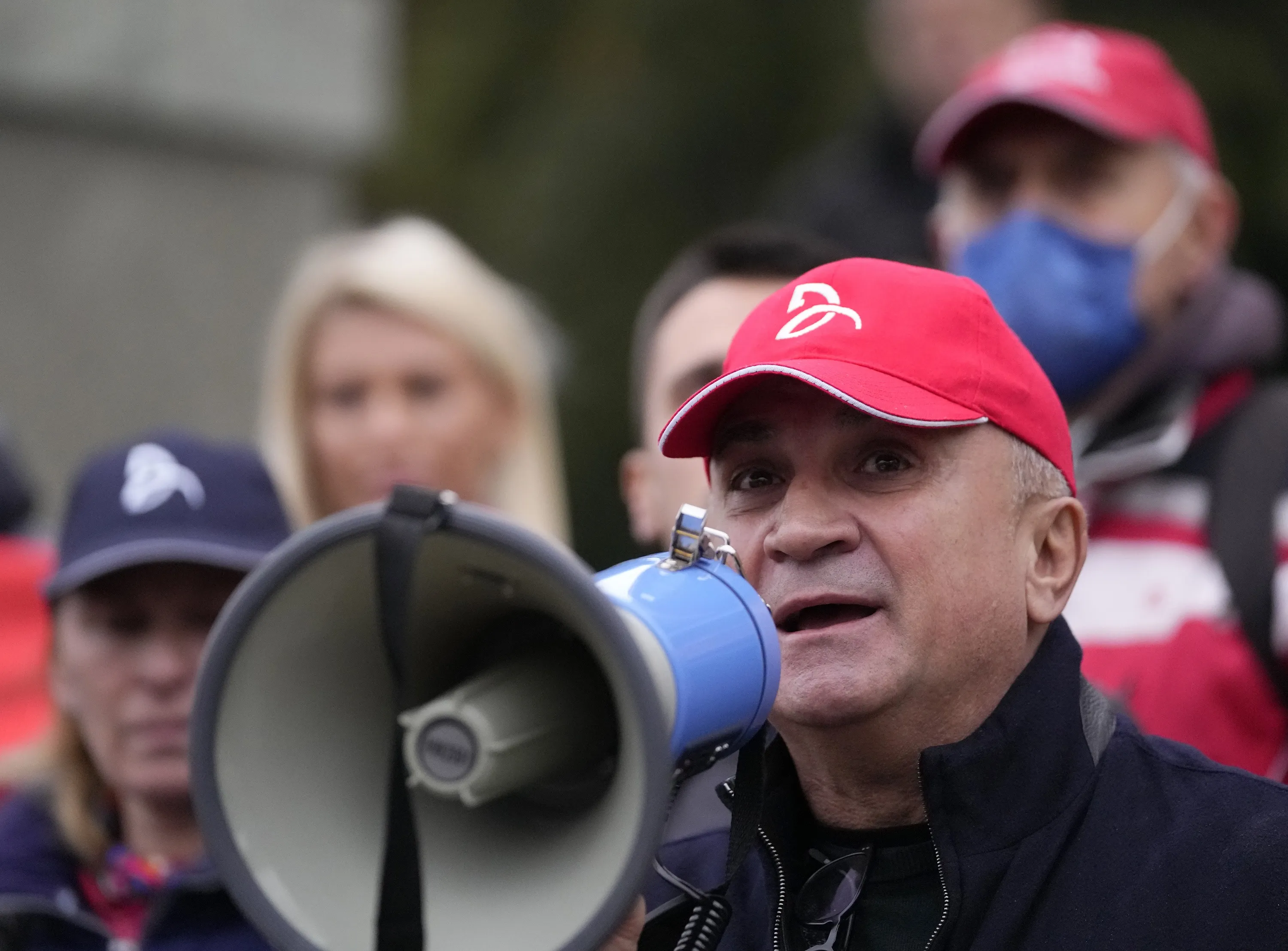
Growing Up in a Country at War
Djokovic was born in 1987 in Belgrade, then part of Yugoslavia, into a world that would soon descend into turmoil. By the time he was a young boy, the region was consumed by political instability and conflict. The NATO bombings in the late 1990s left the city in ruins, and Djokovic vividly remembers the terrifying sounds of sirens, explosions, and uncertainty that defined his childhood.
For most children, these conditions would destroy dreams before they even had a chance to form. But Djokovic’s parents instilled a sense of hope despite the chaos. His family lived with only $10 to their name, stretching every resource they had to make ends meet. Survival was not guaranteed, but they held on to the belief that Novak had a gift worth nurturing. Even as bombs fell from the sky, he and his brothers would practice tennis in the mornings before hiding in bomb shelters at night.
The environment forged in him a resilience that became central to his athletic identity. When he steps onto a court today, Djokovic often references those days of scarcity and fear as his greatest motivators. Tennis was never just a sport; it was a way to escape poverty and bring pride to his family and his country.
Discovering Tennis Amid Destruction
Amidst the devastation, Novak’s passion for tennis ignited early. His family owned a small pizza restaurant near a local tennis camp run by Jelena Genčić, a legendary coach who had previously mentored champions like Monica Seles. From the moment Genčić saw Djokovic swing a racket, she recognized something extraordinary in him. Despite his tiny frame and the turmoil around him, the young boy had a rare intensity and a natural talent that demanded attention.
Genčić provided him with guidance, but the bigger challenge was financial. Tennis is an expensive sport, requiring equipment, travel, and coaching. For a family that could barely afford basic necessities, the idea of raising a future champion seemed impossible. And yet, Djokovic’s father, Srdjan Djokovic, refused to let circumstances dictate his son’s destiny. He took a bold risk, one that could have broken the family entirely but instead opened doors they could never have imagined.
A Father’s Risky Sacrifice
At the core of Djokovic’s story is the extraordinary gamble made by his father. With little money and no guarantee of return, Srdjan invested everything he had—and more—into his son’s training. He borrowed heavily, made business sacrifices, and even put the family’s stability on the line. The family lived in constant financial strain, surviving day by day, as Srdjan’s vision of Novak becoming a world-class athlete consumed their future.
There were nights when the family had little food, but they never complained. Instead, they rallied behind Novak’s dream. His father’s belief never wavered, and that conviction became the fuel Djokovic needed to endure endless training sessions, grueling travel, and the emotional toll of leaving home at such a young age.
One of the defining moments came when Novak was just 12 years old. Srdjan sent him to Germany to train at Nikola Pilić’s academy, a decision that separated the young boy from his family for long stretches. It was an enormous emotional and financial burden, but it provided Novak with the professional coaching environment he desperately needed. For the Djokovics, this was the ultimate sacrifice—risking everything for a chance at greatness.
Resilience Forged in Adversity
Djokovic’s childhood experiences did not just shape him as an athlete—they shaped him as a person. The fear of war, the pain of separation from his family, and the financial insecurity all left scars, but they also built an unbreakable mindset. On court, he became known for his extraordinary mental toughness, his ability to fight back from impossible situations, and his refusal to surrender even when the odds were against him.
When fans see Djokovic saving match points in dramatic fashion or clawing his way back after losing two sets, they are witnessing the spirit of a child who once played tennis with bombs falling overhead. Every comeback, every moment of defiance, is rooted in those early lessons of survival and perseverance.
From $10 to Global Dominance
What makes Djokovic’s story so compelling is the sheer contrast between his beginnings and where he stands today. From surviving with $10 in his family’s pocket to becoming one of the wealthiest and most successful athletes in the world, his journey symbolizes the triumph of determination over circumstance.
By the mid-2000s, Djokovic’s talent exploded onto the world stage. His first Grand Slam title at the 2008 Australian Open announced his arrival as a serious contender. But it was his rivalry with Federer and Nadal that truly defined his legacy. Facing legends who had already carved their names into history, Djokovic not only competed with them—he surpassed them.
Every major title he lifted was a testament not only to his skill but to the sacrifices made long before. The Djokovic family’s struggles were vindicated with every championship, every record broken, and every moment he stood proudly with the Serbian flag.
The Emotional Connection to His Roots
Despite global fame, Djokovic has never hidden the impact of his Serbian roots. He often speaks about the pain of seeing his country demonized during the wars, and he carries that chip on his shoulder into his matches. For him, tennis has always been about more than personal glory; it has been about proving something to the world and honoring the sacrifices of his family.
When he returned to Serbia after winning his first major titles, the celebrations were monumental. To his people, he was not just a champion but a symbol of resilience—a reminder that even those from the most difficult circumstances could rise to the very top of the world.
Lessons from Djokovic’s Journey
Djokovic’s revelations about his harrowing childhood serve as a reminder of the unseen struggles behind greatness. Fans see the polished athlete, the trophies, and the accolades, but his success is inseparable from the nights in bomb shelters, the hunger, the fear, and the unwavering belief of his father. His story is not just about tennis—it is about courage, family, and sacrifice.
He often credits his parents, particularly his father’s risky decisions, for giving him the chance to pursue his passion. Without that leap of faith, the world might never have known Novak Djokovic as the champion he is today. It highlights a universal truth: greatness is rarely achieved without immense sacrifice, and the support of those who dare to believe can change everything.
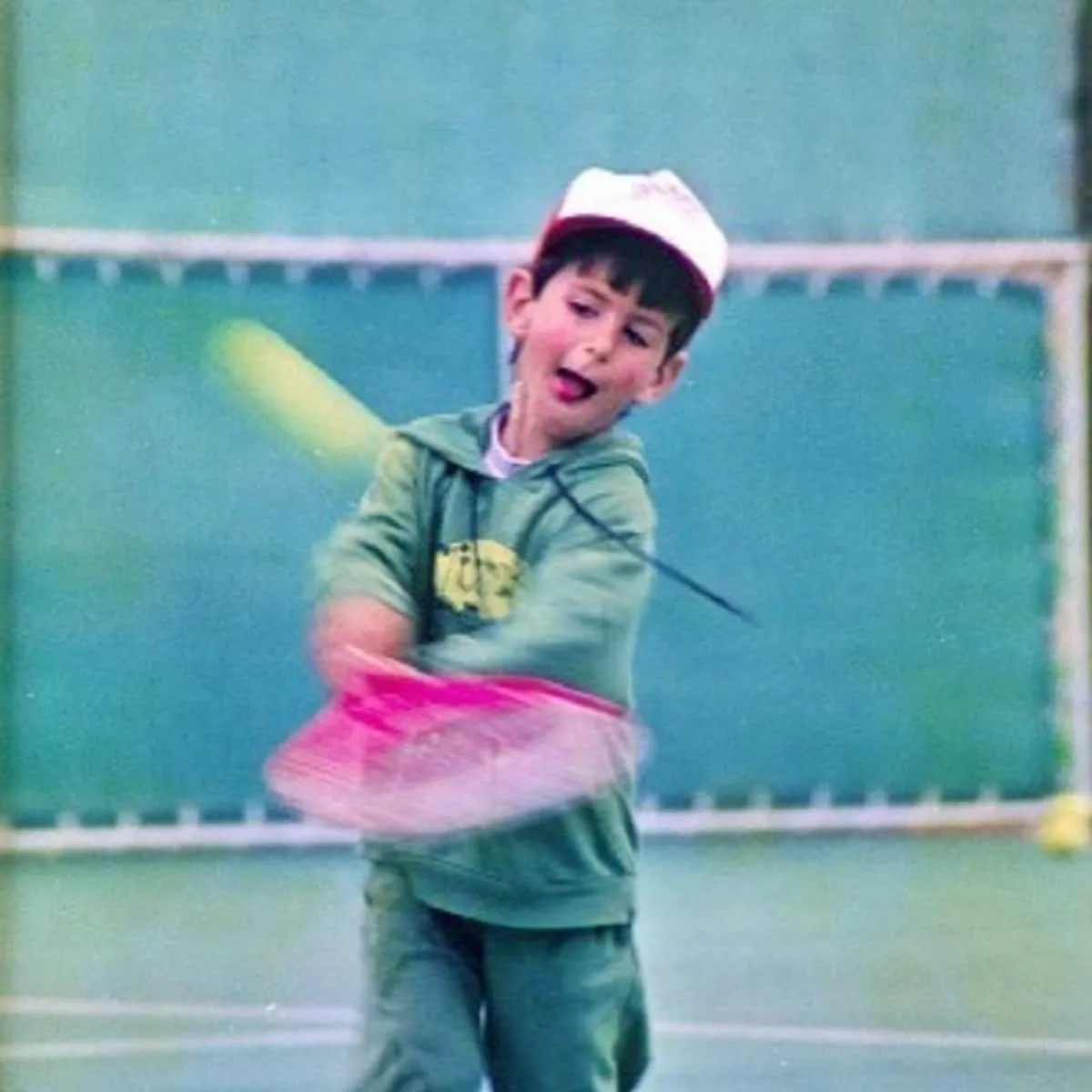
Conclusion: From Survival to Legacy
The journey of Novak Djokovic is one of the most remarkable in the world of sports. From surviving bombings in Belgrade with only $10, to enduring years of uncertainty, to witnessing his father sacrifice everything for his future, Djokovic’s rise is nothing short of inspirational. His story is about far more than tennis titles; it is a testament to the human spirit’s ability to endure, adapt, and ultimately triumph.
Today, when Djokovic steps onto the court, he carries with him the weight of his past, the sacrifices of his family, and the resilience forged in the darkest of times. His success is not just measured in numbers or records, but in the journey from survival to greatness—a journey that began with a child in war-torn Serbia and a father willing to risk it all.








